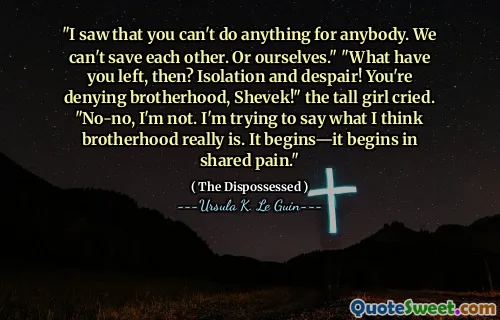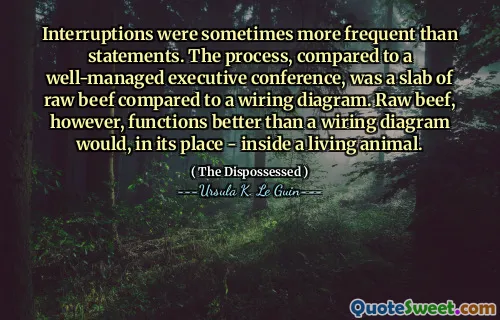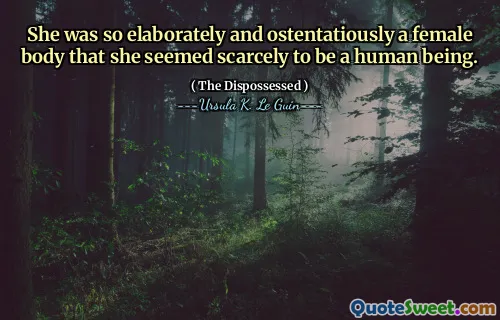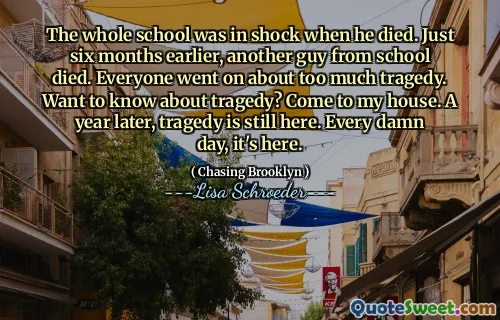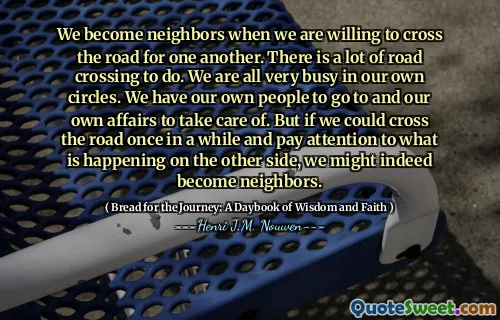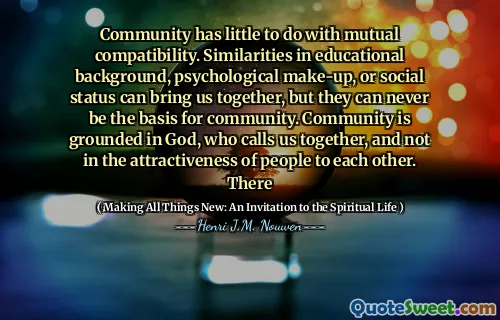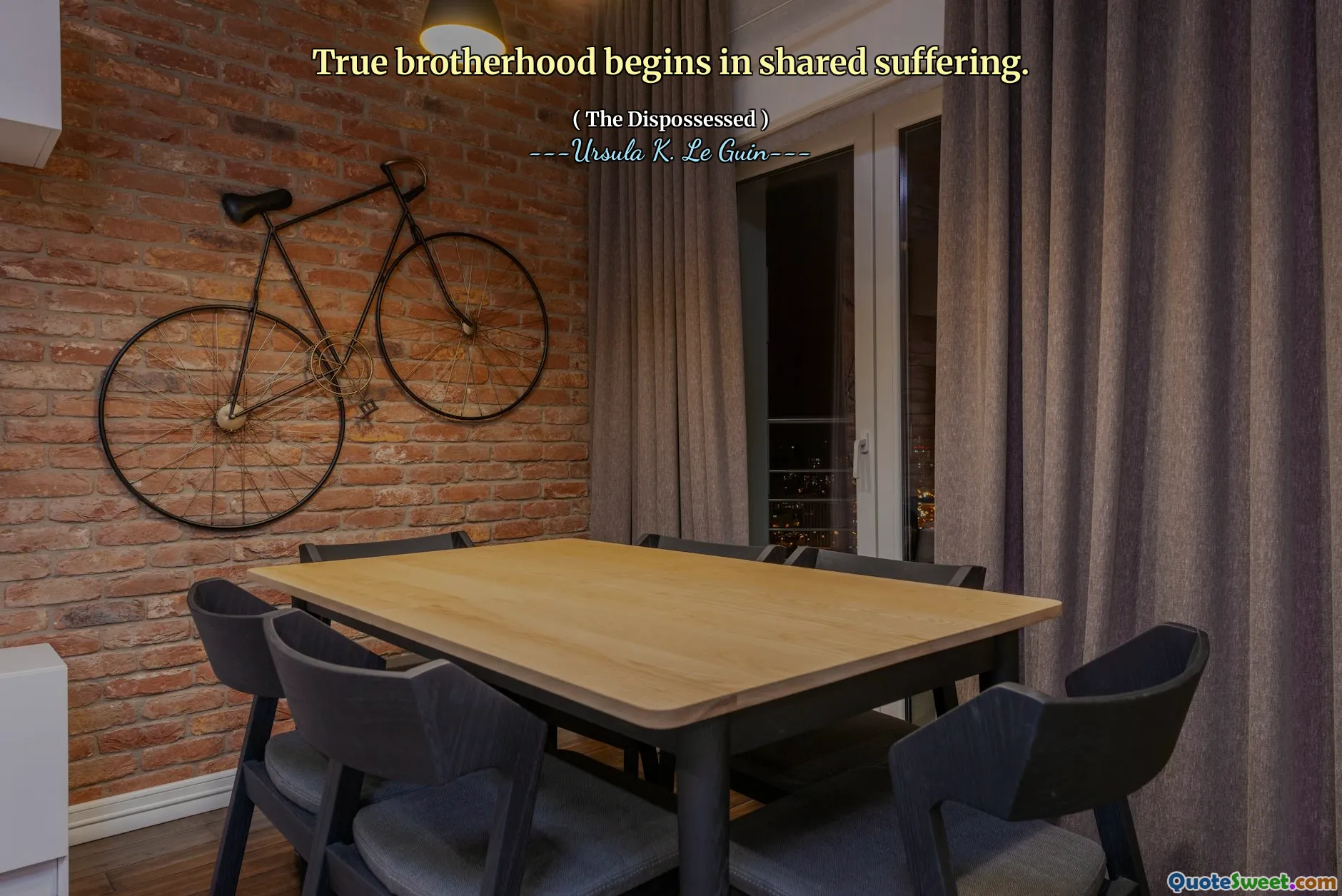
True brotherhood begins in shared suffering.
This quote highlights the profound connections that naturally arise when individuals experience hardship together. It suggests that the bonds of brotherhood or solidarity are often forged not in times of comfort or prosperity but during moments of collective struggle. Such shared adversity creates a sense of unity and mutual understanding that surpasses superficial relationships. When people endure pain or hardship as a community, they often develop a deeper empathy for one another, recognizing their interconnectedness and shared humanity. This idea resonates deeply within social and political contexts, emphasizing that true solidarity requires standing together amidst difficulties.
In the context of Mülksüzler (The Dispossessed) by Ursula K. Le Guin, the notion of shared suffering becomes especially relevant as it underscores the importance of collective resilience and solidarity in the face of systemic oppression or alienation. The book delves into themes of anarchism, communal living, and the struggle for justice, illustrating that meaningful change often begins when individuals unite through their common struggles.
This perspective invites us to reflect on our own relationships and societal structures. It challenges us to consider how empathy and compassion are strengthened through adversity. Rather than viewing hardship as purely negative, it can be seen as a catalyst for deepening bonds and fostering genuine solidarity. Recognizing the importance of shared suffering can inspire us to stand with others during difficult times, forming communities grounded in mutual support and understanding. Ultimately, this quote reminds us that authentic brotherhood and unity are cultivated through compassion in moments of collective challenge.
